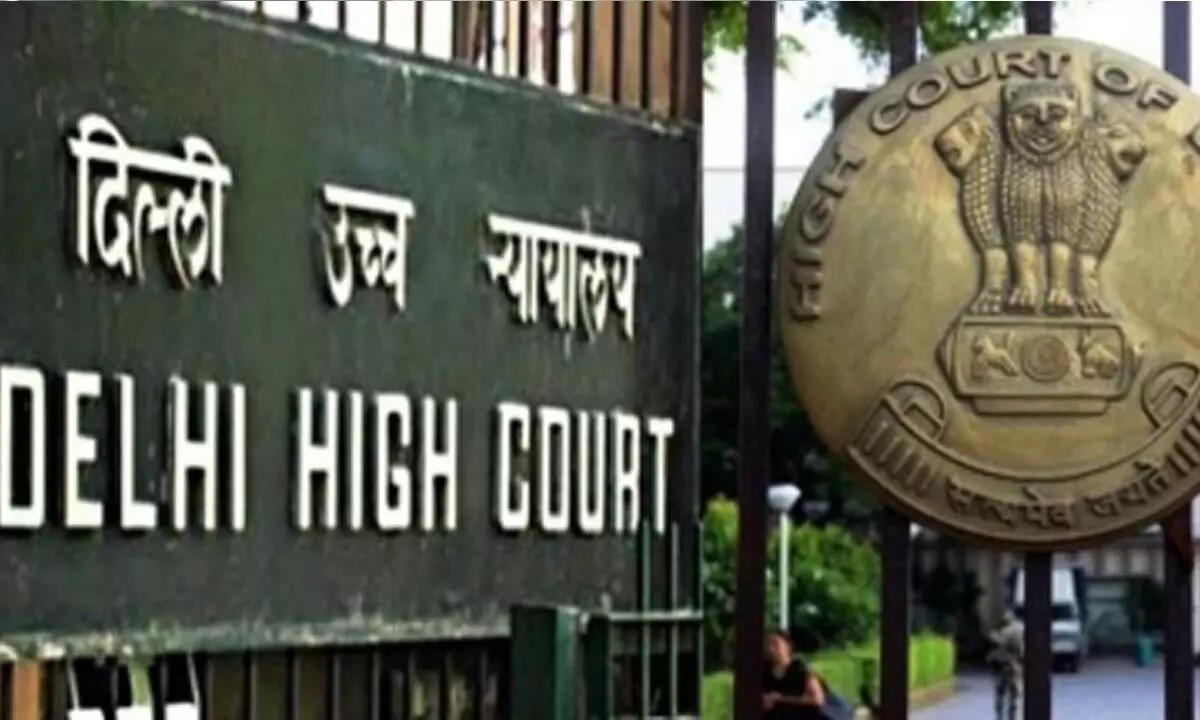Live
- India's growth on resilient trajectory, equity markets in consolidation phase
- KJo on 23 years of ‘Kabhi Khushi Kabhie Gham’: One of those pinch me moments
- WPL 2025 auction: Nandini, Kamalini set to be most sought-after names
- MP CM to inaugurate Sarsi resort in Shahdol, 200-bed hospital in Mauganj today
- TGPSC makes arrangements for Group-2 exams to be held tomorrow
- WPL 2025 Auction: When and where to watch, date, time, live streaming, venue
- Japan: Citizens protest US military-related sexual violence
- Buy on dips strategy working well in Indian stock market amid sharp rebound
- Sri Lanka concludes sovereign bond restructuring
- Lal Krishna Advani hospitalised at Delhi's Apollo Hospital
Just In
Delhi High Court Commences Proceedings On Chief Minister's Challenge To ED Arrest


- Follow the unfolding legal battle as the Delhi High Court reviews the Chief Minister's plea challenging his arrest by the Enforcement Directorate (ED).
- Explore the implications of this high-profile case on the intersection of law and politics.
The Delhi High Court finds itself at the center of a legal storm as it hears a petition filed by Arvind Kejriwal, the incarcerated Chief Minister of Delhi, challenging his arrest by the Enforcement Directorate (ED) in connection with amoney-laundering case linked to an alleged excise policy scam. Kejriwal's plea, seeking immediate release on the grounds of the arrest and subsequent remand being deemed "illegal", has been scheduled for hearing before Justice Swarana Kanta Sharma.
The Aam Aadmi Party (AAP) national convener found himself behind bars on March 21, following which he was remanded to the custody of the ED until March 28 by a Delhi court, citing the need for "detailed and sustained interrogation". Prior to this, Kejriwal had approached the court to quash all proceedings, including summonses, issued against him in relation to the case.
The arrest of Kejriwal has sparked political uproar, with the AAP staging protests on the streets, including attempts to march towards the Prime Minister's residence, which were met with intervention by law enforcement. Concurrently, the Bharatiya Janata Party (BJP) has organized counter-protests, calling for the resignation of the Delhi Chief Minister.
While in ED custody, Kejriwal issued directives to his health minister, Saurabh Bharadwaj, addressing concerns over the shortage of medicines and diagnostic tests at mohalla clinics and hospitals in the city, signaling his continued involvement in administrative matters despite his legal predicament.
At the heart of the matter lies the allegations levied against Kejriwal, wherein he is accused of soliciting kickbacks from liquor traders in exchange for favors, purportedly serving as the "kingpin and key conspirator" in the now-defunct excise policy. This case has seen the ED target several high-profile AAP leaders, including Manish Sisodia and Sanjay Singh, with allegations of being beneficiaries of the proceeds of crime.
Kejriwal vehemently denies these accusations, attributing them to political vendetta orchestrated by the BJP-led central government. He has consistently accused the ruling regime of manipulating investigative agencies for partisan ends, characterizing his arrest as a politically motivated maneuver aimed at undermining his administration and tarnishing his reputation.
As the legal battle unfolds in the Delhi High Court, the case against Arvind Kejriwal continues to be mired in controversy, reflecting the intersection of law, politics, and power dynamics in India's capital city. The outcome of these proceedings will not only have implications for Kejriwal's political future but also for the broader discourse surrounding accountability, transparency, and the independence of law enforcement agencies in the country.

© 2024 Hyderabad Media House Limited/The Hans India. All rights reserved. Powered by hocalwire.com






